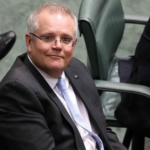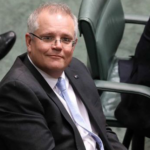The Nation Will Pay for Morrison’s Attack on Universities
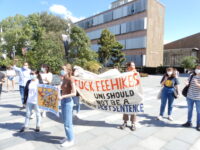
By cover of COVID, the Morrison government has been carrying out a sustained attack against Australian public universities, which has subsequently spurred on management at these institutions to commence its own series of cuts to higher education.
The Coalition denied the JobKeeper wage subsidy package to all university staff – except for those on the books at private institutions – while education minister Dan Tehan has drafted legislation that could see tuition fees for humanities doubled, and a tightening of student financial supports.
And on the back of the withholding of the pandemic subsidy, along with concerns over a supposed downturn in international student numbers, public universities across the country have begun sacking hundreds of full time staff, after thousands of casuals lost their positions last semester.
And let’s face it, as Morrison and his cronies perpetrate this half-cocked ideological war against universities, the entire nation is going to suffer, not just in terms of a lot of unemployed academics, but from a dearth of educated young adults, as well as vital research going into the future.
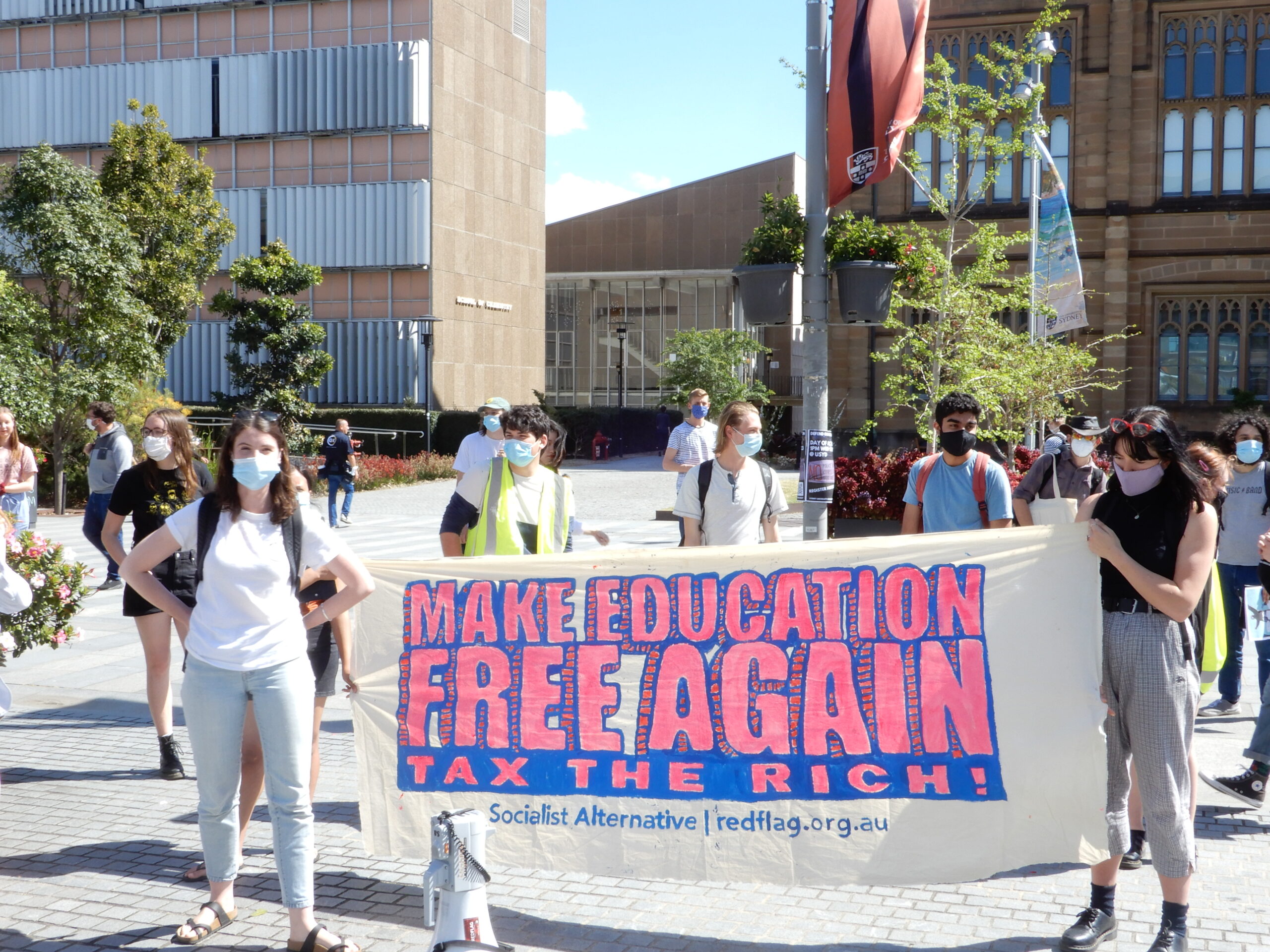
A time for internal culling
“New York University has a branch in Sydney, and staff members there get JobKeeper,” explained Sydney University linguistics academic Dr Nicholas Riemer. “But me and my colleagues at Australian partly-federally-funded universities don’t.”
“It’s clearly part of a concerted attack on higher education by the Morrison government,” he added.
At Sydney Uni, the Dean of Arts indicated last month that there’s the potential to see up to 30 percent of full time staff losing their jobs. And as the USyd Casuals Network broke that news, it asserted that there’s no difference in flagging such a scenario and having concrete plans.
These austerity measures have been blamed upon a lack of government funding accompanied by a reduction in international student fees.
However, as Riemer points out his university has now indicated that it hasn’t seen a huge downturn in its financial position, while domestic enrolments are actually up.
The National Tertiary Education Union (NTEU) Sydney University branch committee member further said that management at his uni is now suggesting that culling staff should continue as “next year’s enrolments could go down”.
“Universities are basically run by corporate Australia,” Dr Riemer told Sydney Criminal Lawyers. “So, it’s no surprise that we’re seeing the same kind of austerity logic that we’re used to in other parts of the economy being applied to higher education.”
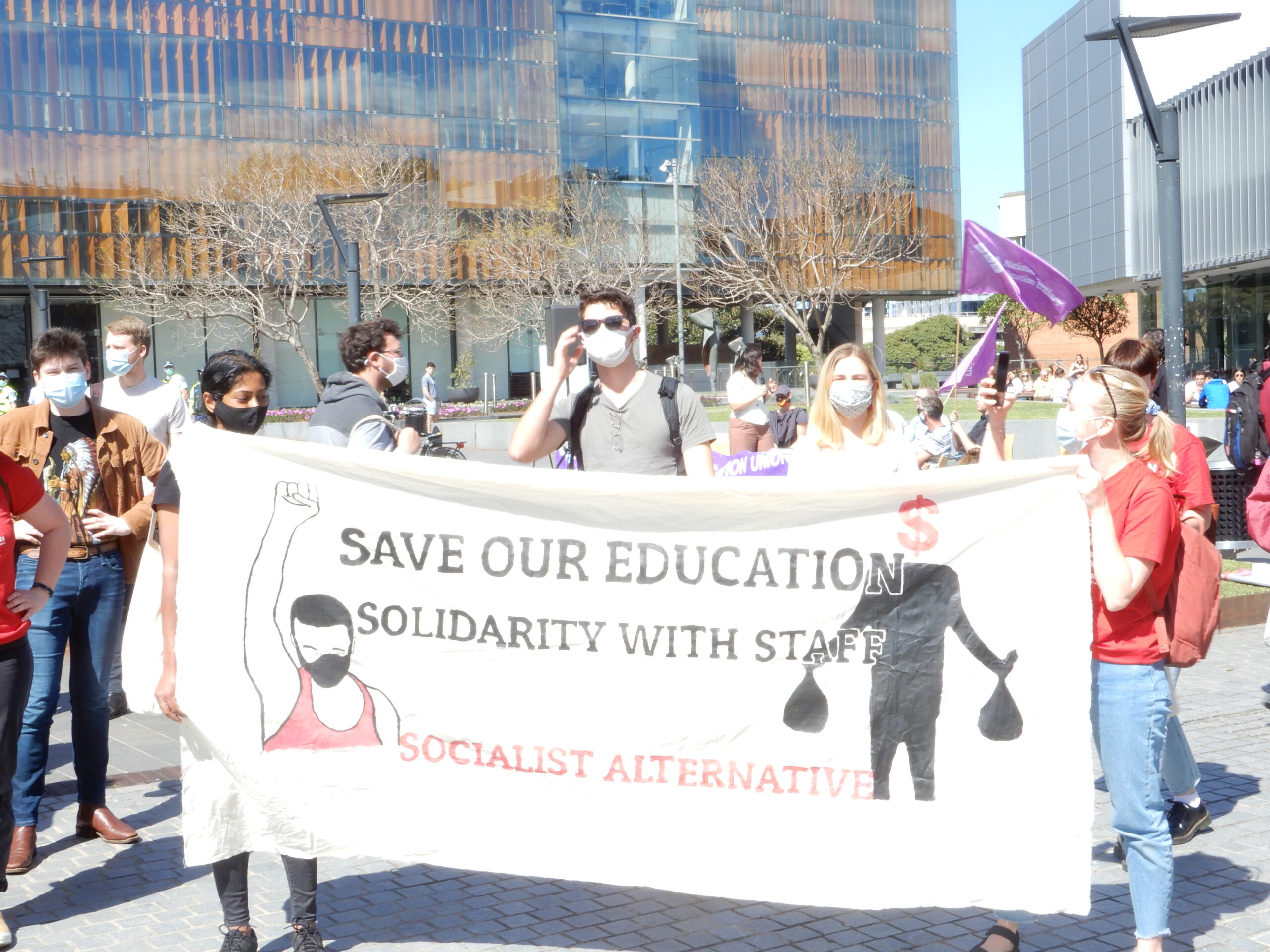
Pandemic punishment
As the Morrison government commenced rolling out its JobKeeper subsidy to ensure businesses maintained their employees during the pandemic, it actually made a series of three changes to the wage package that specifically ruled out public university staff.
Minister Tehan then introduced the Job-Ready Bill, which seeks to deliver a series of funding cuts and reforms to higher education that are supposedly going to ensure more graduates are ready for employment.
Already passed in the lower house, if the bill succeeds in the Senate, the fees for humanities and arts degrees will double, law degree fees will increase, while students that overall fail their first year at university will be cut off from government deferred payment loans for good.
And while the Job-Ready measures are supposed to encourage enrolment in STEM degrees by dropping their fees, the government is cutting its contribution to these types of courses – a drop that’s greater than the overall fee reduction.
Idiotic ideology
“Sydney Uni has produced multiple Liberal Party politicians. Multiple Liberal Party politicians did arts,” Riemer made clear.
“So, do they really think that in starving universities generally, they’re going to be doing something that’s good for society – even on their criteria?”
The linguistics academic further posited that some conservative members of the federal Coalition seem to believe that public universities are these “Marxist cells that give rise to radicalism”, when in actual fact “higher education has been part of the fabric of middleclass life for generations”.
In his opinion, what’s at play here is Morrison attacking universities out of some misguided notion that they’re a “hotbed of political radicalism”. And he adds that while the Johnson government in the UK is politically on par with the Coalition, it’s not attacking its higher education system.
“What other reason could there be for their petty and vindictive bid to make humanities degrees much more expensive? Why the humanities, more than anything else?” Riemer asked in conclusion. “It’s that sort of thinking that must lie behind it.”





